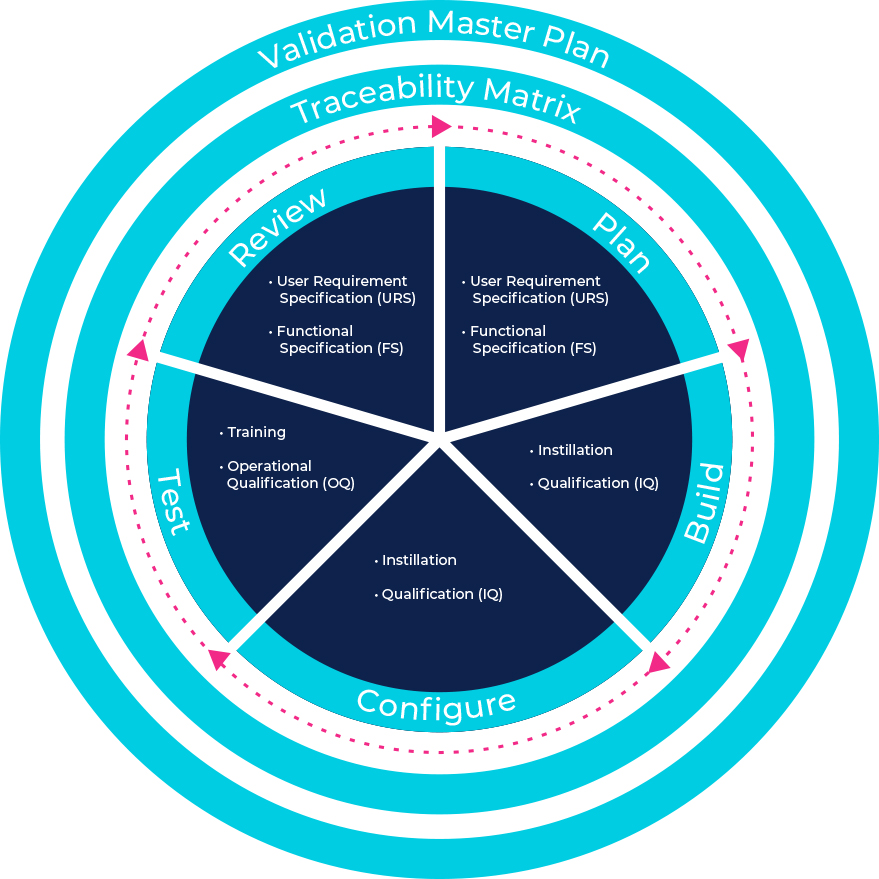The development of software for healthcare products demands a meticulous focus on quality, safety, and regulatory compliance. In a field where sensitive data management directly impacts patient health, precision, risk management, and reliability are essential.
Maintaining high standards that guarantee user safety and meet international regulatory requirements is vital. ISO 13485:2018 is one of the key standards that support these objectives. Designed specifically to validate an organization’s capability to manage healthcare products, ISO 13485 also encompasses software development, ensuring that products meet stringent quality and safety requirements.
Key Aspects in Developing Technology for Medical Products
- Regulatory Compliance: The healthcare sector is tightly regulated, with varying standards across countries. Software companies must ensure their solutions comply with both local and international regulations that protect patients and ensure software quality. ISO 13485 is a fundamental standard in this area.
- Risk Management: Given that errors in healthcare software can have serious patient consequences, risk management is crucial throughout the product lifecycle. This process involves identifying, assessing, and mitigating any risks associated with software use.
- Interoperability: Healthcare software needs to seamlessly integrate with various medical devices and systems, ensuring that data is transmitted efficiently and accurately.
- Data Security: Protecting medical data is essential. Software must comply with regulations like GDPR, ensuring patient data is safeguarded against unauthorized access or data leaks.
- Traceability: Strict traceability is required for medical products and components at every stage of their lifecycle—from raw materials to the distribution of the final product.
ISO 13485: Quality Standard for Medical Device Software
ISO 13485 certification is a global benchmark that defines quality management requirements for medical devices, including healthcare software. Unlike other standards, ISO 13485 is fully focused on safety and regulatory compliance, addressing key areas like risk management and software validation. The primary benefits of this standard include:
- Global Regulatory Compliance: ISO 13485 facilitates adherence to local and international regulations, enabling software companies to confidently enter global markets.
- Software Lifecycle Management: From design to deployment and maintenance, ISO 13485 ensures that development follows rigorous quality control processes. Traceability is a core element, requiring strict version control and lifecycle management.
- Risk Management: The standard mandates risk analysis and mitigation, minimizing potential failures that could compromise patient safety.
- Validation and Verification: ISO 13485 requires comprehensive testing before a software product reaches the market, ensuring the final product meets technical and regulatory standards.
- Traceability: ISO 13485 mandates that every development phase is documented to trace the source of any issues and apply appropriate solutions.
- Continuous Improvement: The standard encourages ongoing software review and updates to adapt to new regulations, technological advances, and user feedback.
This structured approach helps ensure that healthcare software meets high standards of safety, reliability, and compliance across the product lifecycle.

Success Story: Roche Diagnostics and hiberus
Roche Diagnostics, a global leader in medical innovation, partnered with hiberus to modernize its Navify® Point of Care platform, designed to enhance the management and integration of medical devices in labs and hospitals. This solution enables healthcare facilities to connect devices from multiple manufacturers, automate critical processes, and manage device training and usage in real time.
The Solution
hiberus utilized the agile SAFe framework to develop a platform that combines cloud computing power with real-time processing. This solution allows laboratories and hospitals to efficiently manage their medical devices and monitor performance in real time, improving operational efficiency and ensuring high standards in diagnostic services.
Results
The project not only optimized lab operations but also ensured that Roche met international regulations by integrating the validation and verification processes required by ISO 13485. This approach has allowed Roche to maintain its market leadership with a secure and reliable solution.
Developing software for the healthcare sector carries significant responsibilities, from ensuring patient safety to meeting strict regulatory requirements. ISO 13485 certification plays a key role by providing a framework that guarantees software quality throughout its lifecycle.
Cases like Roche Diagnostics and hiberus show that, with a focus on continuous improvement, risk management, and innovation, it’s possible to create technology solutions that transform healthcare and improve lives.
Discover how hiberus develops pharmaceutical technology that meets the most stringent quality standards.
Do you want more information about our healthcare services and technologies?
Contact with our teams of health experts

